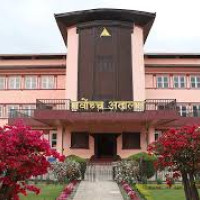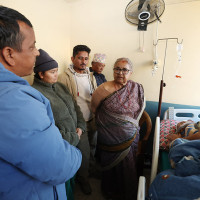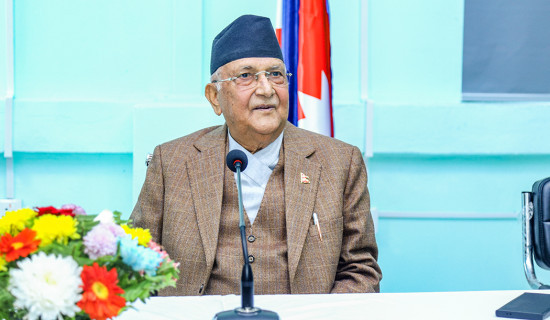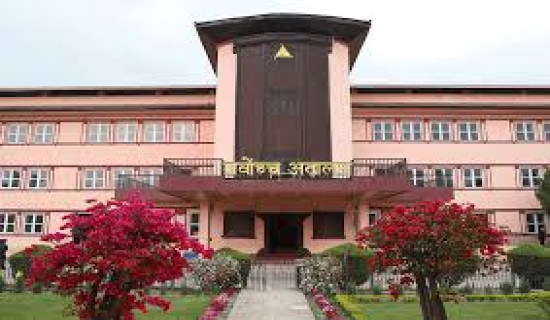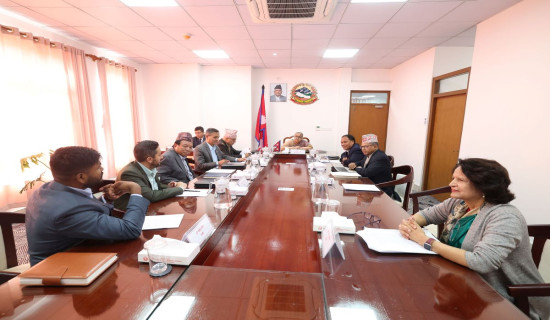- Wednesday, 19 November 2025
BRICS media, think tanks convene to promote BRICS cooperation, new vision for Global South
RIO DE JANEIRO, July 17 (Xinhua) -- Over 250 representatives from nearly 150 media outlets, think tanks, government agencies, and regional organizations across 36 countries gathered here on Wednesday for the BRICS Media and Think Tank Forum, an event focusing on how to advance BRICS cooperation and strengthen solidarity across the Global South.
In his keynote remarks, Fu Hua, forum chair and president of Xinhua News Agency, said greater BRICS cooperation has played a critical role in unifying Global South countries, boosting their influence in global affairs, and driving reform in global governance.
As the forum enters its second decade, Xinhua is committed to working with its BRICS counterparts to tell the Global South's stories more effectively, promote joint research on major issues, and deepen professional collaboration, Fu added.
Zhu Qingqiao, Chinese ambassador to Brazil, in a congratulatory letter, praised the forum's inclusion of discussions on artificial intelligence and highlighted its role in advancing the outcomes of the 17th BRICS Summit.
Zhu expressed hope that the event would further position BRICS as a platform for South-South cooperation and a voice for reform in global governance.
Other speakers echoed their calls. Carlos Hernandez, president of the Central American Parliament, said global governance is in urgent need of new models and new voices.
"The countries represented here today have shown the way forward: one grounded in equitable development, dignity, and multilateralism," he said.
Mikhail Gusman, first deputy director-general of TASS Russian News Agency, noted that BRICS nations reflect the diversity of emerging economies.
Facing growing global media challenges, BRICS media cooperation has an important role in defending truth, justice and peace, he said.
Tia Ju, vice president of the Legislative Assembly of the state of Rio de Janeiro in Brazil, praised China's efforts to unite Global South countries and emphasized the need for media collaboration to increase international visibility and influence for BRICS.
Yeidckol Polevnsky Gurwitz, chair of the Asia-Pacific Foreign Relations Committee of the Mexican Senate, said that Mexico shares with BRICS a vision of inclusive growth and fair trade.
"We cannot allow external interference in our development paths. Together, we must build a multipolar world," she said, referencing China's concept of building a community with a shared future for humanity.
The forum concluded with the release of a think tank report titled "BRICS Cooperation: Advancing the Collective Progress of the Global South" and the launch of two major initiatives: Global South Joint Communication Partnership Program and "Tapping into BRICS, Voices from the South" Content Collaborative Project.
The forum marked the first full meeting of the BRICS media mechanism since the bloc's historic expansion and was co-hosted by Xinhua News Agency and Brazil Communication Company under the theme "BRICS United: Forging a New Chapter for the Global South."
Reshaping global perspectives through media and think tank cooperation
The BRICS Media and Think Tank Forum, convened this week in Rio de Janeiro, brought together voices from across the Global South to jointly reshape the narrative system and enhance the representation of developing countries in international affairs.
The event served as a pivotal gathering for over 250 delegates from media outlets, think tanks, government institutions, and enterprises representing 36 countries, including BRICS member states, partner nations and regional organizations.
Based on the broad consensus of the attendees, the forum delved into a range of critical topics under the theme "BRICS United: Forging a New Chapter for the Global South." Discussions focused on BRICS' role in leading the Global South's development, building a new digital future, and amplifying the voice of the Global South on the international stage.
BUILDING A SHARED DIGITAL FUTURE
An initiative on artificial intelligence (AI) cooperation and development was unveiled at the forum, following extensive discussions among attendees on the roles and responsibilities of media and think tanks in advancing AI collaboration, shaping governance frameworks, and establishing technical standards for the Global South.
Highlighting AI's significant momentum in global communication, industrial cooperation and knowledge sharing, the initiative noted that the BRICS media and think tanks, as a community of collective wisdom among emerging markets and developing countries, must ground their efforts in the realities of the Global South. It called for fostering a collaborative approach to R&D, standards and governance to ensure AI benefits are shared globally.
Though AI has great potential to improve the quality of life worldwide, the enthusiasm for its benefits should not overshadow the potential risks posed by both intentional and unintentional use of its applications, said Edson Prestes e Silva Junior, a full professor at Institute of Informatics of the Federal University of Rio Grande do Sul, Brazil.
"Therefore, we need to strengthen collaboration between our countries and between the different segments of our societies, and that is exactly what we are doing right now," he said at the forum. "Only then will we be able to make the AI domain beneficial to our societies, now and in the future."
SHAPING GLOBAL GOVERNANCE
In a world marked by geopolitical tensions, persistent inequalities and the urgent need for more representative global governance, the BRICS group has emerged as a key platform for engaging with rising economies, said Luis Rene Fernandez Tabio, a full professor at the International Economic Research Center at the University of Havana, Cuba.
Echoing his view, Jose Juan Sanchez, chief of Brazil's financial and agricultural information provider CMA Group, said that despite their political and economic differences, BRICS countries share some strategic advantages that can be leveraged to advance the Global South's development and amplify its influence in global affairs.
BRICS countries possess strong economic clout, abundant natural resources, development experience and financing capacity, positioning them as natural leaders in supporting the Global South, Sanchez noted. He added that by acting collectively and promoting cooperation, BRICS can reshape the global order to be more multipolar, inclusive and just.
Ali Muhammad Ali, managing director of the News Agency of Nigeria, said BRICS is "not just a grouping of emerging economies; we are a force to be reckoned with, and our influence is growing by the day."
"For Nigeria, joining BRICS is a no-brainer. We are strategically positioned in Africa, and we are eager to reshape global governance, challenge Western-dominated institutions, and push for systemic reforms," he added.
AMPLIFYING GLOBAL SOUTH'S VOICE
"We are living through a transformative era -- one in which global power dynamics are shifting, and the overlooked voices of the Global South are finally gaining clarity, strength and recognition," said Wong Chun Wai, chairman of the Malaysian National News Agency.
BRICS offers an alternative voice -- one that champions multipolarity, sovereignty and fairness in global governance, Wong noted. "The rise of BRICS is not an isolated phenomenon. It is part of a broader awakening of the Global South, which is asserting itself as a central force in international affairs."
Mikhail Gusman, first deputy director-general of TASS, said the global media is grappling with unprecedented challenges: a deluge of disinformation, historical revisionism, and technological disruptions eroding the very foundations of truth.
As a dynamic alliance embodying the voice of emerging economies and civilizational diversity, BRICS plays a decisive role in advancing the objective of strengthening a fair, multipolar and rules-based international order, Gusman added.
The BRICS voice is "loud and clear," said Ali, the managing director of the News Agency of Nigeria, who noted that it represents a growing influence beyond the Global South and is shaping global governance, economic development, and international relations.
"We envision a prosperous Global South and a more just and equitable world," he concluded.

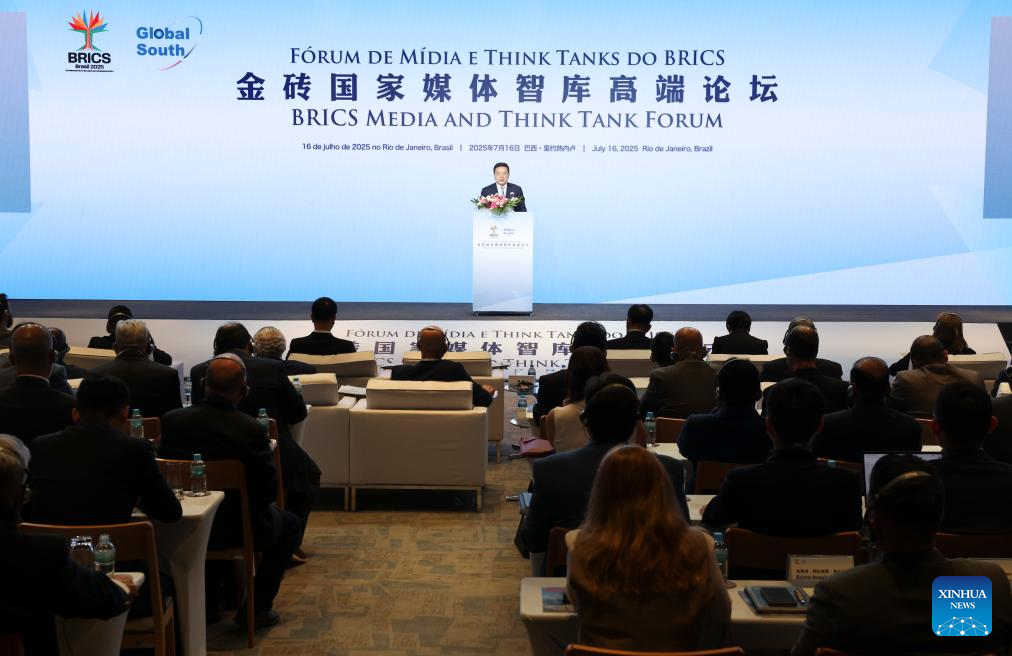

-original-thumb.jpg)
